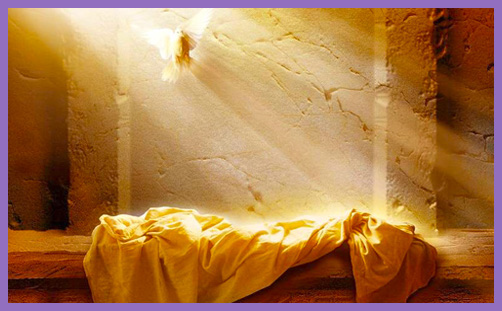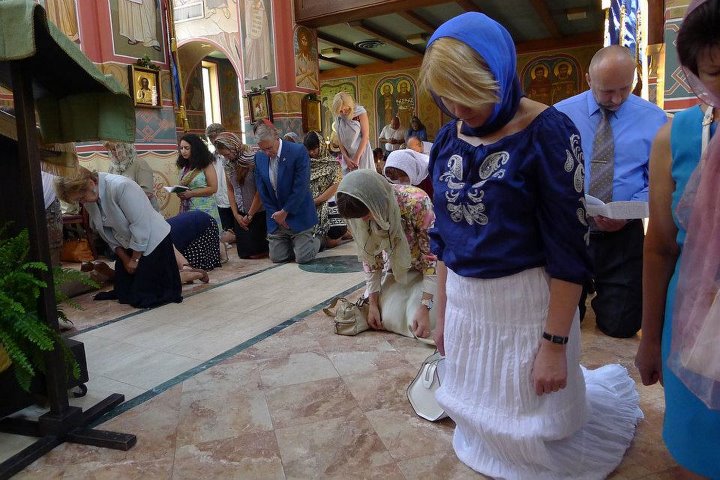|
|
Orthodox Outlet for Dogmatic Enquiries | Orthodoxy |
|
Entering Hell on Pentecost ...with prayer
|
|
Pascha (Easter) comes with a great note of joy in the Christian world. Christ is
risen from the dead and our hearts rejoice. That joy begins to wane as the days
pass. Our lives settle back down to the mundane tasks at hand. After 40 days,
the Church marks the Feast of the Ascension, often attended by only a handful of
the faithful (Rome has more-or-less moved the Ascension to a Sunday to make it
easier). Some excitement returns with the Feast of Pentecost, 50 days after
Pascha, which conveniently falls on a Sunday making its observance easier in a
too-busy-to-notice world. Lost in all of this, however, is a subtext (perhaps it
is the main text). The traditional name for these celebrations is “Soul Saturdays.” They are celebrations of the Divine Liturgy on Saturday mornings offered for the souls of the departed. Most of the Saturdays in Great Lent have them. They make a fitting prelude for Holy Week and Pascha. At Pascha, Christ Himself “tramples down death by death and upon those in the tombs bestows life.” This is the Great and Holy Sabbath – the true and Great Soul Saturday. This is the great theme of Pascha itself. Christ’s Resurrection is, strangely, not so much about Christ as it is about Christ’s action. Many modern Christians treat Pascha (Easter) as though it were a celebration of Jesus’ personal return after a tragic death. Orthodoxy views Christ’s Holy Week, Crucifixion, Descent into Hades and Resurrection as one unending, uninterrupted assault on Hades. This is the great mystery of Pascha – the destruction of death and Hades. Death is the “last enemy.” Those who forget this are like soldiers who have forgotten the purpose of the war in which they fight. Priest: O Christ our God, the ever-flowing Spring, life-giving, illuminating, creative Power, coeternal with the Father, Who hast most excellently fulfilled the whole dispensation of the salvation of mankind, and didst tear apart the indestructible bonds of death, break asunder the bolts of Hades, and tread down the multitude of evil spirits, offering Thyself as a blameless Sacrifice and offering us Thy pure, spotless and sinless body, Who, by this fearsome, inscrutable divine service didst grant us life everlasting; O Thou Who didst descend into Hades, and demolish the eternal bars, revealing an ascent to those who were in the lower abode; Who with the lure of divine wisdom didst entice the dragon, the head of subtle evil, and with Thy boundless power bound him in abysmal hell, in inextinguishable fire, and extreme darkness. O Wisdom of the Father, Thou great of Name Who dost manifest Thyself a great Helper to those who are in distress; a luminous Light to those who sit in darkness and the shadow of death; Thou art the Lord of everlasting glory, the beloved Son of the Most High Father, eternal Light from eternal Light, Thou Sun of justice! … Who also, on this all-perfect and saving feast, dost deign to receive oblations and supplications for those bound in Hades, and grantest unto us the great hope that rest and comfort will be sent down from Thee to the departed from the grief that binds them. (edited for length) Christ is risen! And not one of the dead is left in the grave, for Christ having risen from the dead, is become the first-fruits of those who have fallen asleep.  By Fr. Stephen Freeman Source: https://blogs.ancientfaith.com/ |

